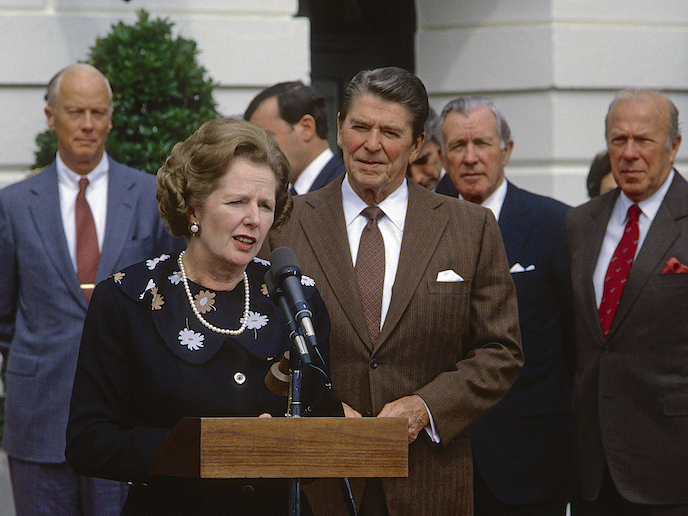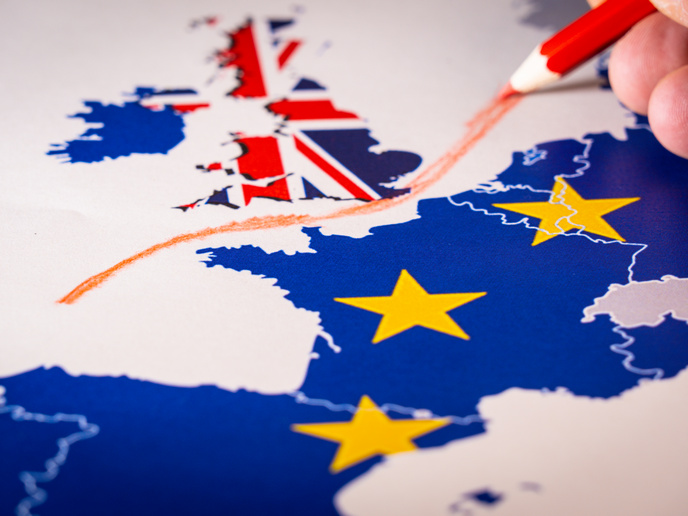Fresh vision of the Second Cold War
‘Iron Lady’ Margaret Thatcher was more flexible than normally depicted and sometimes sided with other European governments against U.S. President Ronald Reagan, despite the ‘special relationship’ between their two countries, a new study by Irish historian Dr Aaron Donaghy has found. The insight is one of many gleaned by Dr Donaghy after studying newly declassified documents and tens of thousands of others from the ‘Second Cold War’ – 1979 to 1985 – on the EU project INTERMESTIC. They included papers from the Ronald Reagan presidential libraries and the National Archives in the UK. Carried out with support from the Marie Curie programme, the research forms the basis of the book: ‘The Second Cold War: Carter, Reagan and the Politics of Foreign Policy’, which is being prepared for Cambridge University Press. Dr Donaghy has also published the article ‘Brexit, the Falklands and Intermestic Politics’(opens in new window) in the British Politics Review and another is due out: ‘Congress, Parliament and the Nuclear Weapons Debates, 1981-84’. “The British prime minister was at heart a pragmatist, more malleable than the ‘Iron Lady’ tag so often attributed to her,” said Dr Donaghy. He argues historians have tended to underestimate domestic pressures on shaping foreign policy such as interest groups, election cycles and the influence of members of parliament: “Only by examining the full landscape – international and domestic – can we truly grasp how the key figures operated: what influenced their risk calculus, why they prioritised certain policies and discarded others, or why they decided to shift strategy at a given time.” Interests, not ideals National interests tested U.S.-UK and U.S.-European relations during the period. The allies disagreed how to confront Iran after the hostage crisis in late 1979 and on the extent of sanctions against Moscow after the Soviet invasion of Afghanistan in the same year. The Soviet suppression of the Polish Solidarity movement in 1981-82 also created conflict. Under pressure from farm-belt states, Reagan continued to sign grain deals with the Soviets in the early 1980s, so when he accused European leaders of not being tough enough on Moscow, “Thatcher, Helmut Schmidt and François Mitterand denounced Reagan for his inconsistency,” said Dr Donaghy. The international-domestic nexus – what Dr Donaghy dubs ‘intermestic’ - explains the last great Cold War struggle. This peaked in 1983, the year he was born, when a nuclear conflict between the East and West was as many believe, more likely than at any stage since the Cuban Missile Crisis in 1962. “My work explains why this did not materialise and why tensions began to ease – even before Mikhail Gorbachev became Soviet leader in March 1985.” Dr Donaghy carried out the research as a fellow at Nottingham, Cornell and Harvard Universities. He toured the United States, visiting archives and interviewing veteran congressmen. “The EU funding was essential,” he said. “Most government and political archives remain un-digitised or only partially digitised. I had to do all the leg-work, which takes a great deal of time and expense.”







